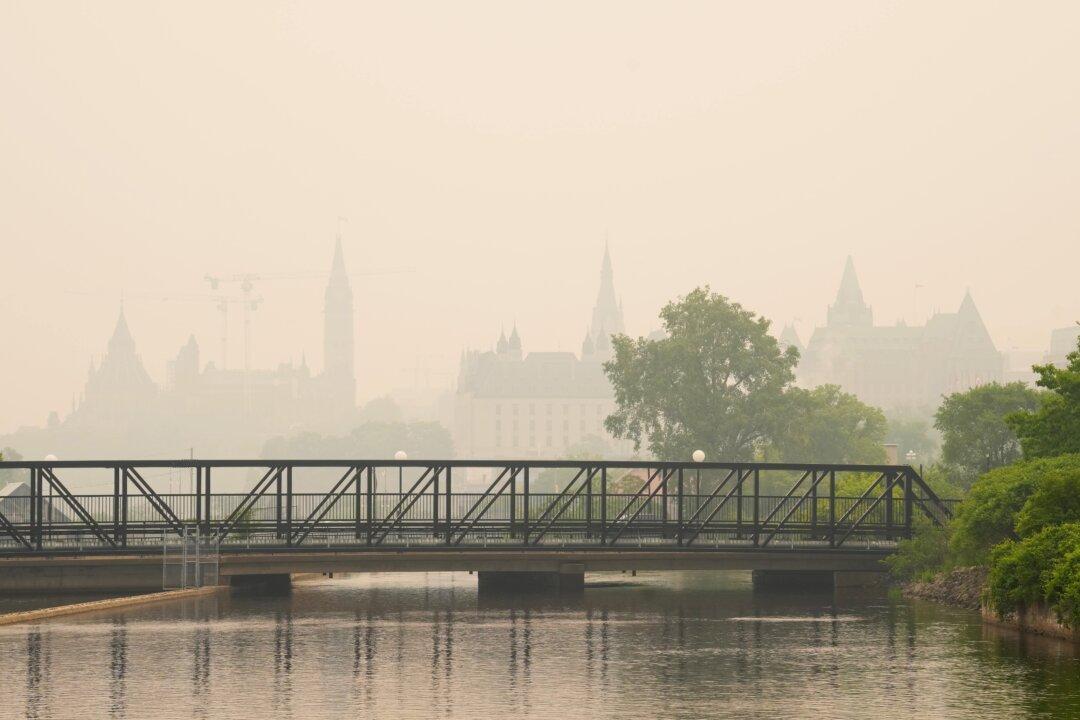Poor air quality due to wildfires may persist into the weekend for some of Canada’s most populous cities, Environment Canada says.
Toronto is expected to continue experiencing hazy skies and poor air quality over the next 72 hours as smoke from wildfires in Quebec and northeastern Ontario continues to compromise the air quality in southwestern Ontario.





